A Scripps tradition that has spanned over a decade, Capstone Day is a chance for graduating seniors to share the theses they have spent the past year (and sometimes more) laboring over. Nominated by faculty, over 82 students from nearly 40 disciplines presented their scholarship during Capstone Day 2019, presenting on wide-ranging topics, from dance to data encryption. Below is a sampling that showcases the range and erudition of some of the spectacular seniors from the Class of 2019.
Bella Ratner
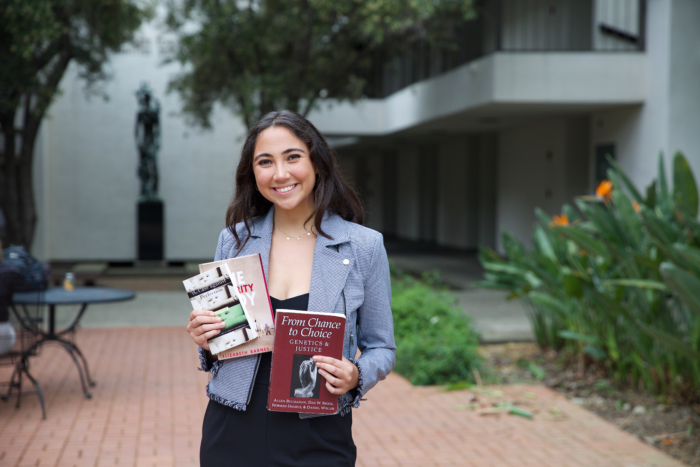
For her senior thesis, philosophy major Bella Ratner ’19 explored the ethics of genetic engineering on fetuses. Ratner mines both sides of the argument: those in favor of genetic engineering tend to see it as a vehicle for health promotion, while those opposed see a slippery slope to eugenics. “Genetic engineering technology is booming—they are already experimenting with it in China,” explains Ratner. “Now is the time to think about the implications.”
Darlene Nguyen
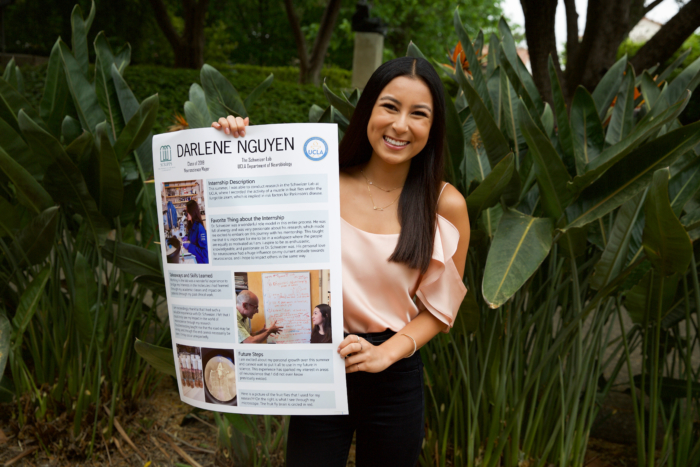
Neuroscience major Darlene Nguyen ’19 presented on how the pesticide ziram may be a risk factor for Parkinson’s disease. Her research found that exposing certain neurons to ziram increased their excitability, which has correlations to the neuropathies of Parkinson’s. Nguyen began her research last summer in the Schweizer Lab in the Department of Neurobiology at UCLA through a Scripps Summer Internship grant, and she plans to eventually apply to medical school. “I’ve always been interested in how human systems interact, and with of the help of my professors and Career Planning & Resources, I’ve been able to find and study what I love,” she says.
Emily Collins
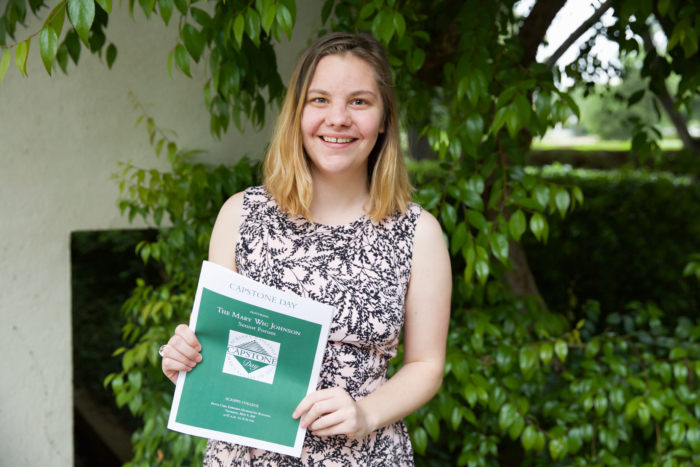
Economics and psychology major Emily Collins ’19 examined possible correlations between the four-day school week implemented in many Colorado school districts and rates of suspensions, expulsions, and juvenile arrests among high school students. She found that, generally, there was a decrease in the numbers of suspensions, expulsions, and law enforcement referrals among those with a four-day school week, possibly supporting the efficacy of this schedule. “I studied this topic because I’m ultimately interested in educational policy and finding ways, more broadly, to help people and institutions flourish,” she says. Collins worked in the lab of Associate Professor of Psychology Jennifer Groscup, which conducts research at the intersection of psychology and law.
Alexandra Rivera
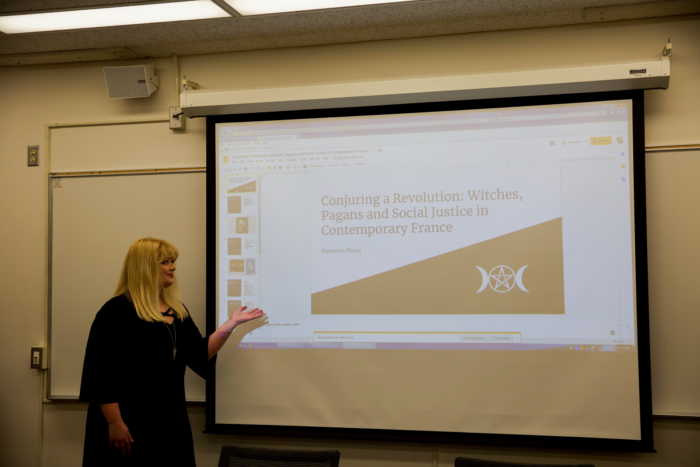
Spanning decades, continents, and topics, Alexandra Rivera ’19’s French studies thesis explores how witches and pagans have begun to involve themselves in large-scale political movements, combining spiritual power with direct action in the U.S. and France. A double English and French studies major and self-described Francophile and Slavic pagan, Rivera was thrilled to take a sociological approach to her own history and interests. “I learned so much about myself, time management, theory, and things that have always captivated me,” says Rivera, who has served as a staff writer for the Scripps Voice. “Writing a thesis for each of my majors was certainly hard, but I definitely feel accomplished.”
Kripa Mehta
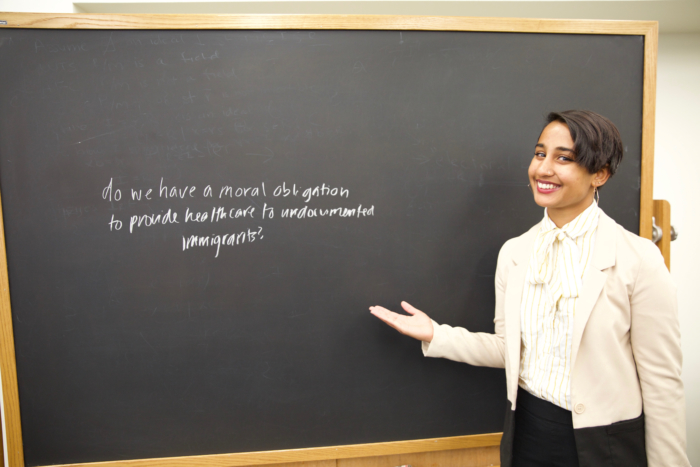
Kripa Mehta ’19’s dual biology and bioethics thesis examines the epidemiology of infection among immigrant and host populations as well as the ethical claim to healthcare among immigrants in a host country. She found that there is a bilateral disease transmission between immigrants and host populations for infections such as HIV, TB, and respiratory infections. Mehta also ascertained what she calls the “shadow social contract,” the state of affairs in which the U.S. thrives on undocumented labor yet, at the same time, criminalizes undocumented immigrants. She hopes her research will positively affect immigrants’ healthcare rights: “I was driven by personal passion,” says Mehta, who plans to pursue graduate education in public health and conduct health disparities research.
Katherine Meyer
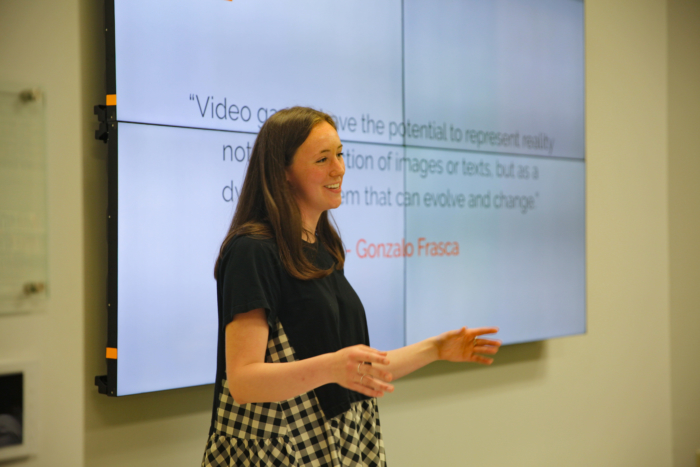
Media studies major Katherine Mayer ’19 conceptualized and launched a video game for her senior thesis that critically examines the e-commerce company Amazon. Inspired by accounts she had read about workers’ conditions in Amazon fulfilment centers, the players in her game have to negotiate the quotas placed on product “pickers” with workplace issues they may encounter, such as needing a bathroom break. “This situation is really ‘gamifiable,’” says Mayer. “I was interested in merging entertainment and critique, which is a topic I learned a lot about in my media studies classes taught by Assistant Professor Carlin Wing.”

